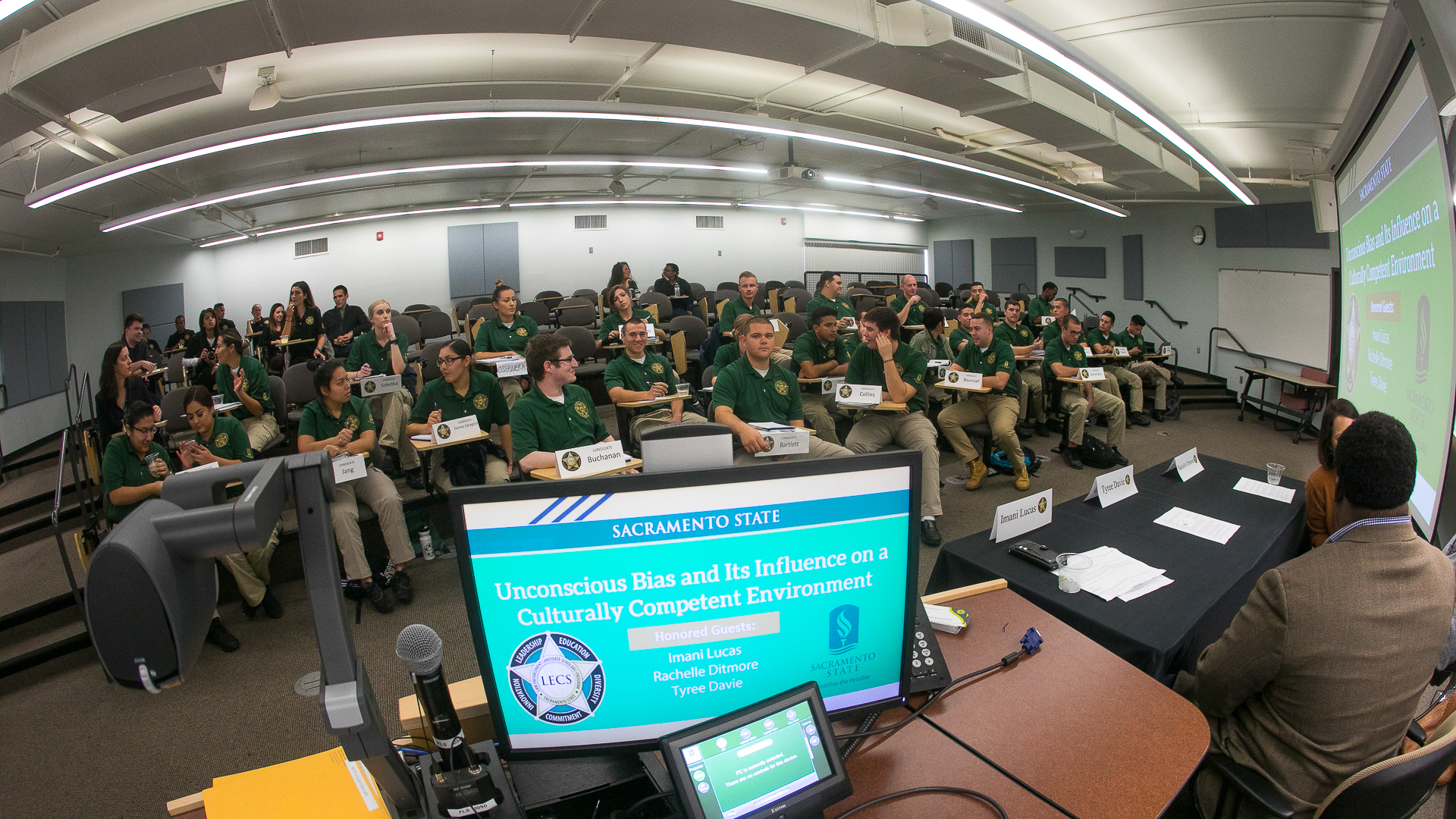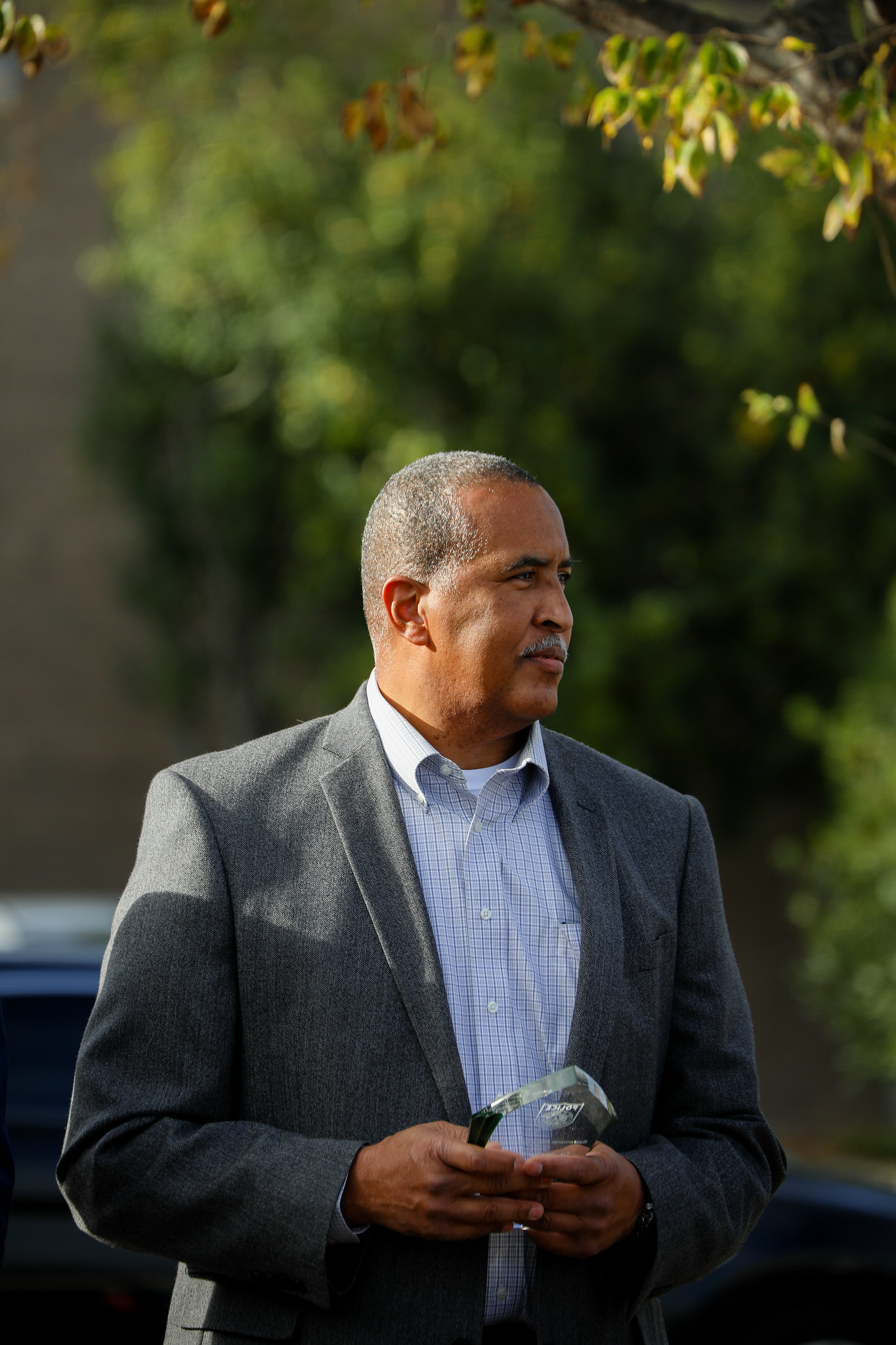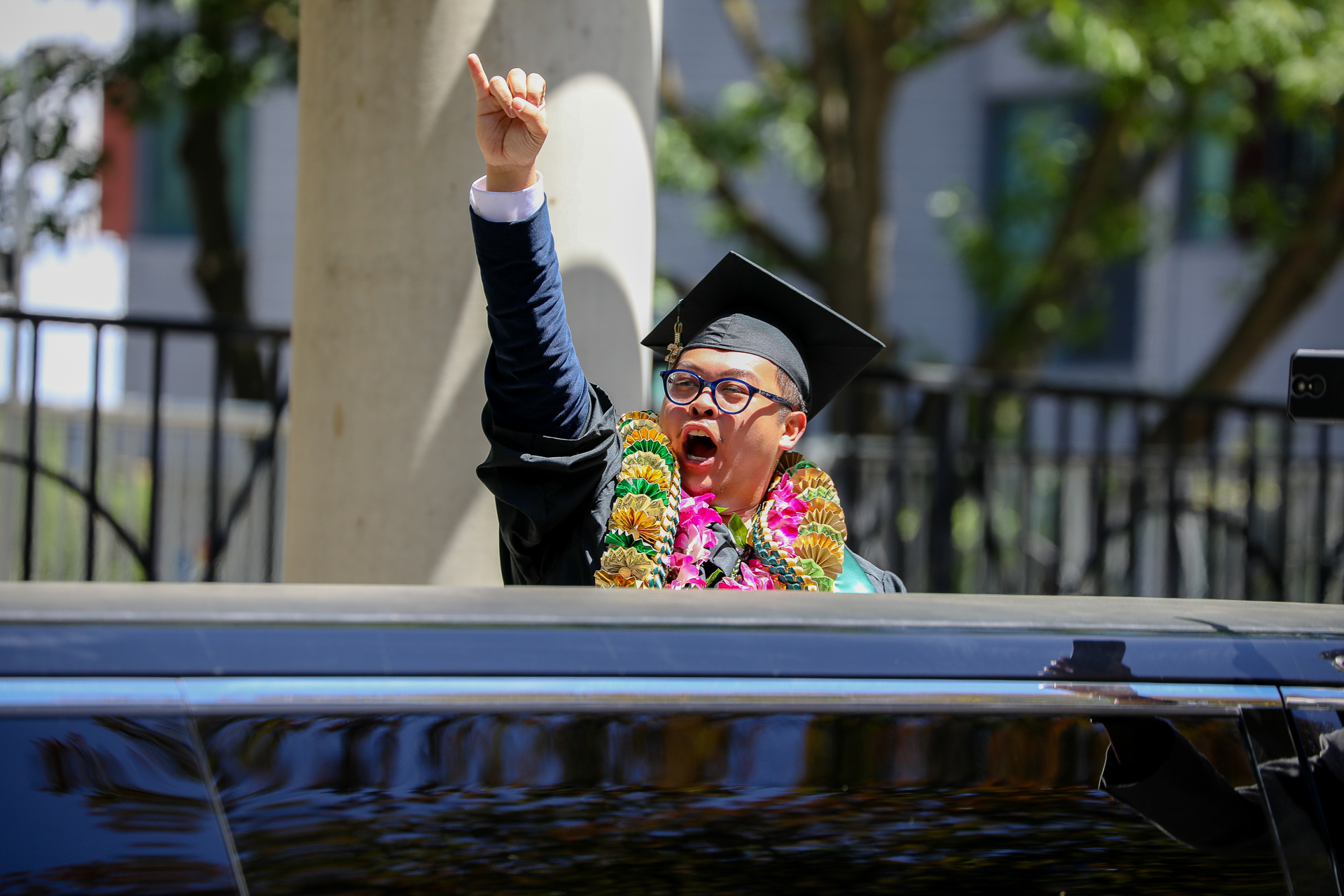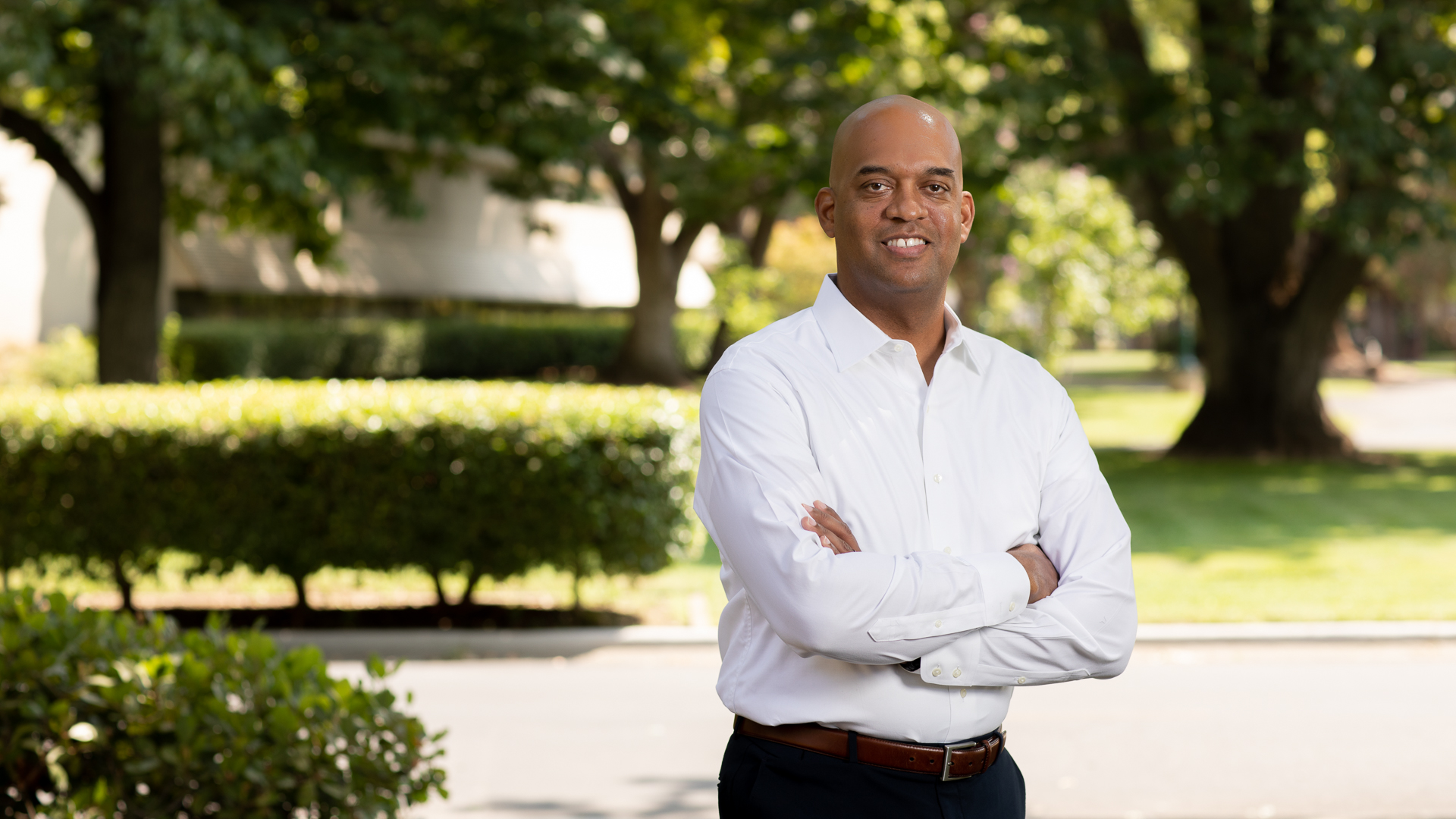Story Content
LECS marks five years of preparing law enforcement professionals

October 27, 2021
During his 18 years as a Sacramento Police officer, Shelby Moffatt responded to thousands of homicides, burglaries, robberies, domestic violence incidents, and traffic collisions.
He remained an officer even after he began teaching part-time in Sacramento State’s Division of Criminal Justice (CJ). Before long, Moffatt realized most students hoping for a career in law enforcement simply weren’t ready.
“My (police) colleagues said the majority of young women and men coming into the department weren’t prepared for the rigors of the job because their perception of law enforcement came from watching television,” Moffatt said.
Students also were not culturally prepared to engage a diverse public, and they struggled with basic law enforcement concepts, he said.
To fill those gaps, in 2016 Moffatt founded Sacramento State’s Law Enforcement Candidate Scholars (LECS) program, believed to be the first scholars-to-officers program in the United States.
The impact was immediate, that success shown by more than 200 Sac State alumni having graduated from LECS, with 50 currently working as peace officers with either the Sacramento Police Department (SPD) or the California Highway Patrol. Further, LECS grads are hired at twice the rate of law enforcement job applicants overall.

SPD Chief Daniel Hahn surprised Moffatt, his former patrol partner, with a commendation during a ceremony Wednesday, Oct. 27, at the Public Safety Center on Freeport Boulevard. Current LECS students and several LECS graduates now serving with SPD were in attendance.
“Recruiting has always been a challenge, to find good people to serve our community,” said Hahn ’95 (Marketing). “We’re here to recognize the five-year anniversary of the program that helps us not only recruit good officers but good, diverse officers.
“We’re also here to recognize someone who is special to me and to this program, because it was his brainchild. This was his idea, to partner the greatest university in our region with the greatest police department in our region, to develop and find great people to become police officers.”
The program is a partnership among the University, the CHP, and Sacramento Police. Potential future partners include the Elk Grove Police Department and the Sacramento County and Placer County sheriff’s offices.
Moffatt says his goal is to see LECS or similar scholar-to-officer programs established at all CSU campuses.
When LECS was launched Oct. 12, 2016, then-Sacramento Police Chief Sam Somers called it “a model program” that will “get people into the (law enforcement) profession and ready to hit the streets.”
LECS is open to full-time Sac State juniors and seniors, regardless of their major. The program’s goals include increasing retention and graduation rates, creating strong partnerships between the University and law enforcement agencies, and ensuring law enforcement personnel and leadership mirror the state’s diversity.
In 2014, soon after a Black teen named Michael Brown Jr. was shot and killed by a white police officer in Ferguson, Mo., Moffatt took his dissertation research and the idea for LECS to Mary Maguire, then the CJ division chair and now the College of Health and Human Services interim dean.
“From my previous work as a social worker,” Maguire said, “it was clear that students considering law enforcement needed a stronger grounding in the communities they were about to serve.
“Local agencies talked about wanting to hire more diverse law enforcement, but our students were not getting hired. As a unique, holistic preparatory program that instills understanding of and respect for diversity, LECS not only serves our students and partners but Sacramento communities at large.”
LECS Ceremony 2019
From the beginning, Moffatt has worked with Sac State’s Career Center and its director, Melissa Repa, who calls LECS “a whole new paradigm of career development.”
“Dr. Moffatt has helped to bridge many gaps between law enforcement and our communities,” Repa said. “He is helping our students be the difference in their communities and become the best and brightest officers in the state.”
So far, LECS’s enrollment has been 60.1% male and 38.8% female. Just over half of students identify as Latinx. More than half of all LECS students come from low-income families, and more than 40% are the first in their family to attend college.
“Joining LECS was definitely one of the greatest decisions I made in college,” said Martha Negrete, who graduated in May 2020 with a CJ degree and hopes to begin training at the CHP academy in November.
“LECS not only opened many doors and opportunities, but also helped me meet some of the best individuals I have ever known.”
Negrete is a recipient of Sac State’s Tara O’Sullivan LECS Legacy Scholarship, which honors the 26-year-old Sacramento Police officer fatally shot in June 2019 while helping a woman flee domestic violence. O’Sullivan, a Child Development major, was one of the first four students to complete LECS and was the only female among them.
“She has inspired me to pour my heart not only into my future career as a police officer but in helping those who are in need,” Negrete said.
Are you interested in supporting the LECS program? See your giving options here.
Law Enforcement Candidate Scholars (LECS) demographics, since 2016
Gender
Male – 60.1%
Female – 38.8%
Ethnicity
Latinx – 50.5%
White – 24.5%
Asian – 10.1%
Black – 5.9%
Other – 9.2%
Pell Grant eligible (low-income) – 55.3%
First in family to attend college – 42.6%
Media Resources
Faculty/Staff Resources
Looking for a Faculty Expert?
Contact University Communications
(916) 217-8366
communications@csus.edu


